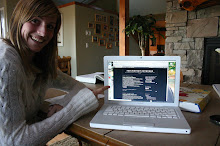- Bosses who ran political machines engaged in widespread election fraud.
- Electricity made possible the construction of the first subways in the city of New York.
- Robert Hunter published the book Poverty in 1904.
- The business leader who was so ruthless in assembling the Standard Oil Corporation and in crushing his competition that he became one of the most reviled of the robber barons was John D. Rockafeller.
- Skyscrapers were made possible by the use of steel framework.
- The post-1880 "new immigrants" were regarded as being racially inferior, incapable of assimilating to American values and traditions, and culturally impoverished.
- Machine bosses won the loyalty of urban voters--especially immigrants--through helping newly arrived immigrants obtain jobs (often on city payrolls), occasionally providing food, fuel, or clothing to families in dire need, and providing poor neighborhoods with paved roads and sewer systems.
- Social Darwinists believed that society developed according to the principle of "survival of the fittest."
- Most of the mass immigration to America was propelled by economic hardship.
- Young women responded to the post-Victorian period and the new, liberated climate of the 1890s by discarding their corsets.
- Henry Ford unveiled a car that was reliable and affordable to most Americans; it was called a model-T.
- The most significant change in American corporate structure in the late 19th Century was the growth of corporations.
- Formulas for increasing efficiency and reducing waste were often far less scientific than developers claimed, willingness of workers to play the mechanical role assigned to them was overestimate, and the fact that studies were costly were reasons the introduction of scientific management practices rarely proceeded smoothly.
- Black farmers were exploited by landowners who often forced them to accept artificially low prices for their crops, they risked retaliation for traveling elsewhere to sell their crops, and landowners charged high prices for seed, tools, and groceries at the local stores that they controlled.
- "Nickelodeons" only cost a nickel, movie-goers needed no knowledge of English to understand what was happening on the "silent screen," and lasted only fifteen minutes--therefore requiring little leisure time to watch.
- Buyers and sellers separated by thousands of miles were able to maintain constant communications due to a national network of telegraph lines.
- Ford doubled the average manufacturing wage then prevalent in American industry when he raised the wage of his assembly line workers to $5 a day.
- Each ethnic group of immigrants in America quickly established a network of new institutions, such as fraternal societies, that gave them a sense of community, by making small loans, providing members with death benefits, and serving as centers of sociability.
- Ford Motors experienced managerial efforts to speed production induced physical exhaustion, workers repeated a single motion all day long, inducing mental stupor, workers expressed their dissatisfaction by quitting.
- Andrew Carnegie and J. P. Morgan merged two hundred separate companies and formed United States Steel.
- Two of the most important new technologies of the early twentieth century were the invention of the gasoline-powered internal combustion engine and the harnessing of electricity.
- "Time and motion" studies were used by management to achieve the highest worker speed and efficiency.
Thursday, February 26, 2009
Chapter 20 Info
Subscribe to:
Post Comments (Atom)

No comments:
Post a Comment